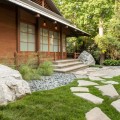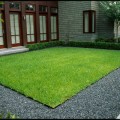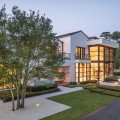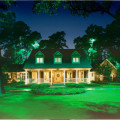Residential Landscape Architect
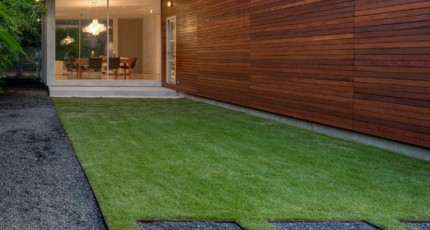
The residential landscape architect is a true architect in every sense of the word. He or she studies construction theory and home design in order to identify the geometric forms that are common to both the natural world and the creations of man. This understanding enables the designer to better unify organic forms with home architecture and construct outdoor structures that compliment the house and blend harmoniously with organic elements. Such knowledge is not gained through haphazard trial and error or unconscious osmosis, but is rather cultivated deliberately through years of formal study and field experience.
A better understanding of the essentials of home building makes it possible for the residential landscape architect to create complimentary forms and outdoor buildings throughout the entirety of the lot. Patios, hardscapes, walls, custom fountains, outdoor kitchens, and custom swimming pools are all developed stylistically with the utmost respect for home architecture in mind. This emphasis on the house proper as the focal point of the landscape brings Nature and man-made form into unity and better supports the sense of outdoor living as opposed to merely stepping outside.
The residential landscape architect also studies biology as much as he or she studies geometry. Botanical expertise is absolutely essential to superior landscaping design. Vegetation is a major element to most styles of landscaping (with the possible exceptions of contemporary and modern designs), so it is vitally important to know what plants, flowers, shrubs, and tree species will best support the outdoor theme being developed.
The expert must not only know what plant species will best grown in Houston landscape environment, but he or she must also be thoroughly familiar with what species grow best together. This knowledge extends beyond flowering plants and shrubbery and includes a thorough knowledge of trees and tree preservation techniques. Trees add a vertical element to the landscape aesthetic and provide much needed shade for gathering places and certain types of plant that need less light instead of more. All of this must be blended together into a living system that will compliment and work toward enhancing homeowner lifestyle and entertainment requirements.
Home landscape design is such a sophisticated science that outdoor lighting is essential to its completion. There is little point to creating complex outdoor living environments if they cannot be seen and enjoyed after sundown. With outdoor lighting, however, any garden, pool, patio, hardscape, or outdoor building can be magnified and accentuated regardless of natural lighting conditions.
The residential landscape architect must understand the essential elements of lighting design in order to located and effectively work with the right outdoor lighting specialists. Such joint expertise is necessary to ensure that the technology employed to illuminate a particular property remains true to the ultimate design theme at hand.
Just as lighting is a visible and very key component to landscape development, the infrastructure of any such design is equally important to its ultimate success. We are specifically speaking here of irrigation and drainage systems which have to customize designed to support the specific organic forms developed by the residential landscape architect. These water management systems have to do two things to make the homeowner’s investment viable and secure. First, they must maintain the vitality of vegetation in order to keep the yard green and colorful throughout the year. Secondly, when unexpected heavy rains suddenly strike Houston as they always do, drainage systems must move the excess rainwater off the property at a faster rate that it can accumulate in order to prevent stagnation of plant life and damage to outdoor structures.
These irrigation and drainage systems not only have to work, but they also have to work behind the scenes in order to prevent raw mechanics from diminishing aesthetics. The construction of these systems requires the residential landscape architect study engineering theory and basic water management techniques in order to build effective irrigation and drainage networks.
Property that extends living space into outdoor space in this fashion gives the homeowner more choice in either living in a more sustainable and livable environment or cashing in on his or her initial investment and moving on to a new destination. In either case, the expertise of a residential landscape architect will only benefit the Houstonian both in the short term and in the ultimate long term outcomes generated by the initial investment in professional landscape design.

